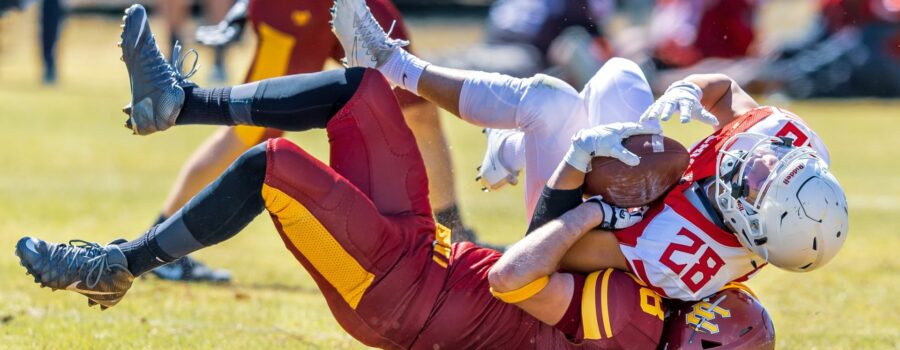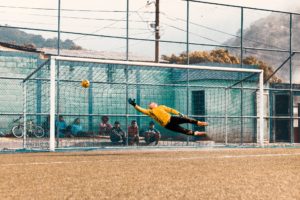Injuries can be a frustrating and scary experience for the athlete. A common fear is re-injury; which can occur before the athlete has healed from his/her original injury or may occur once he/she has returned to play. This article discusses sport psychology research and what we have learned about the psychological risk factors related to injury.
Life stress has been found to be a predictor of possible re-injury. However, stress itself does not cause injury. Psychological research has demonstrated that a high level of major life stress (moving, divorce, death of a family member) or a high level of daily ‘hassles’ (unwanted daily stress such as a flat tire, getting a speeding ticket, losing your cell phone) can place the athlete at increased risk for injury.
Stress is thought to increase the risk for injury because the athlete may have difficulty with focus and attention as well as high levels of muscle tension. Research by Jean Williams Ph.D. at the University of Arizona indicates that athletes who have high life stress, few psychological coping skills, and little in the way of social supports have the highest risk for injury or re-injury.
Parents and coaches can increase the risk of an athlete to be injured or re-injured. Two mindsets towards injury can be harmful to the athlete. The first risk is when a parent or coach views injury as a weakness which leads an athlete to hide injury and continues to play. Hiding injury obviously increases the risk of injury and can lead to permanent physical damage. The second risk is a parent or coach who emphasizes winning and the team regardless of the athlete’s physical status. This mindset of sacrificing one’s body for the good of the team or winning again places the athlete at significant risk.
These risk factors do not mean that the athlete will become injured, however, research has repeatedly demonstrated that athlete with the combination of high life stress, few psychological coping skills, and little in the way of social supports have a higher injury and re-injury rate. William’s theory of psychological factors of injury suggests providing athletes mental skills training to reduce risk for injury/re-injury.
Having a team atmosphere which allows discussion of injury and promotes treatment and rehabilitation is best for the athlete and team. Teaching the athlete to listen to his/her body and distinguish between the normal pain of training and competition versus strain/injury is important. Athletes who do not understand this difference are at higher risk for injury as well as overtraining syndrome and burnout.
Jean Williams Ph.D. research and work with athletes suggest coaches, parents and trainers be observant of athletes who have high life stress, few psychological coping skills and little in the way of social supports. Teaching the athlete mental coping skills to manage daily life stresses is recommended. For athletes who have experienced a major life stressor referral for counseling may be beneficial. A team atmosphere that promotes social support as well as an athletic department which may have classes or groups that talk about the demands of the student athlete or injured athlete can be beneficial.
Hearing from an upper classmen that has been injured, explains his/her rehabilitation, and his/her experience of returning to play can be helpful to the newly injured athlete. Finally, instruction on deep breathing and muscle relaxation skills has been demonstrated to be beneficial to athletes. This instruction and training teaches the athlete to understand his/her body’s response to stress, regulate his/her breathing, and monitor and regulate his/her muscle tension. Educating the athlete with mental skills is the role of the sport psychologist; which can help the athlete handle daily stresses with less ‘hassle’ and decrease his/her risk for injury.
Referral to a sport psychologist for the athlete who has a high level of life stress or recent injury is beneficial. Meeting for three or four sessions helps the athlete learn new life coping skills which can reduce his/her risk for injury as well as facilitate his/her return to play. Formore information about our service or to refer an athlete please call our offices:
Saint Louis, Missouri 314-995-7201
Vail, Colorado 970-926-3144
Naples, Florida 314-229-7361
References:
Williams, Jean (2006). Applied Sport Psychology: Personal growth to peak performance. 5th ed, Mcgraw Hill.




